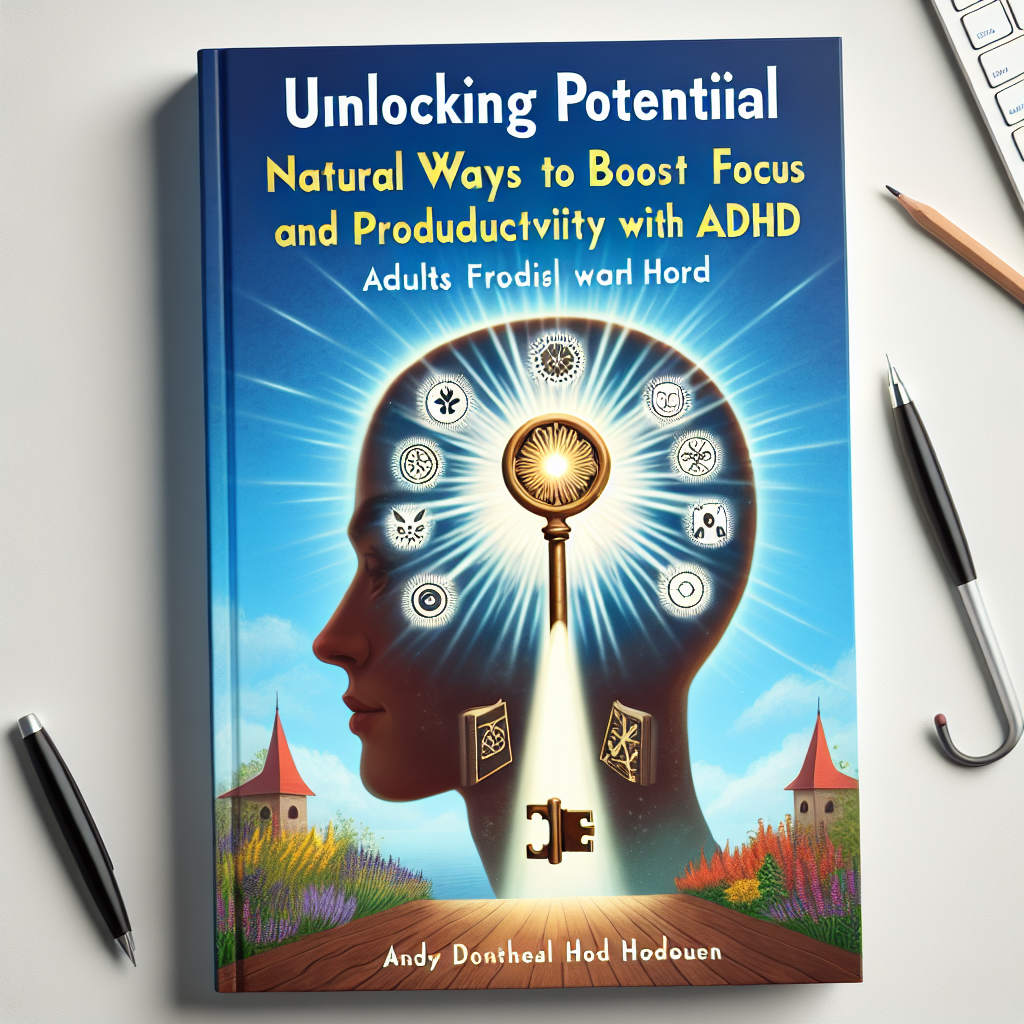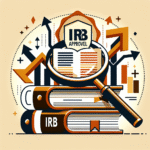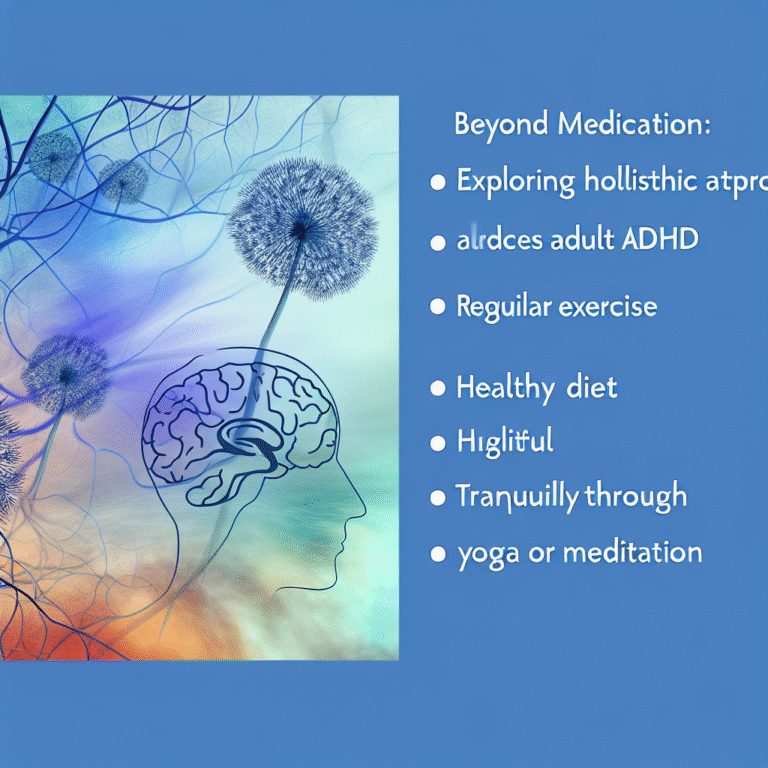
Unlocking Potential: Natural Ways to Optimize Focus and Productivity in Adults with ADHD
Introduction
Imagine waking up each morning with a renewed sense of purpose, clarity, and focus—ready to tackle the day, meet your goals, and chase your dreams. For adults with Attention Deficit Hyperactivity Disorder (ADHD), achieving this ideal can often feel like an uphill battle. However, understanding and implementing natural strategies can be key to unlocking potential and optimizing focus and productivity. In this comprehensive guide, we’ll explore effective, holistic approaches designed specifically for adults facing the challenges of ADHD.
By leveraging natural methods such as nutrition, mindfulness, fitness, and organizational techniques, you can transform your daily routine and ultimately increase your productivity. Let’s embark on this journey of unlocking potential to enhance your focus and improve your quality of life.
Understanding ADHD: A Brief Overview
ADHD is a neurological disorder characterized by patterns of inattention, hyperactivity, and impulsivity. According to the National Institute of Mental Health, approximately 4.4% of adults in the U.S. experience ADHD in their lifetime. While medication is a common treatment option, many individuals seek natural alternatives to enhance their daily functioning.
Key Symptoms of ADHD in Adults
- Inattention: Difficulty maintaining focus, forgetfulness, and trouble organizing tasks.
- Hyperactivity: Restlessness, difficulty sitting still, and excessive talking.
- Impulsivity: Acting without thinking, interrupting others, and poor decision-making.
Understanding these symptoms is crucial for developing strategies that work for you, leading to the overarching goal of unlocking potential and boosting focus and productivity.
Natural Strategies to Optimize Focus
Natural approaches to enhance focus and productivity for adults with ADHD can be categorized into several main areas:
1. Nutrition: Fueling the Brain
What we eat significantly affects our brain chemistry and cognitive function. Studies show a link between diet and ADHD symptoms.
Optimizing Your Diet
Omega-3 Fatty Acids: Found in fish like salmon and in flaxseeds and walnuts, omega-3s are essential for brain health. Research indicates that omega-3 supplementation can improve attention and executive function in adults with ADHD.
Balanced Blood Sugar: Eating regular, balanced meals that include protein, healthy fats, and complex carbohydrates can help stabilize blood sugar levels, thereby reducing symptoms of inattention and hyperactivity.
- Hydration: Dehydration can impair cognitive functioning. Ensure you drink adequate water throughout the day to stay sharp and focused.
Case Study: Peter’s Transformation
Peter, a 36-year-old graphic designer diagnosed with ADHD, often felt overwhelmed by deadlines and creative blocks. His diet consisted primarily of processed foods and sugary snacks, leading to energy crashes that hindered his productivity. After consulting a nutritionist, Peter shifted to a diet rich in omega-3s, whole grains, and lean proteins. Within a month, he noticed a significant improvement in his concentration and energy levels, allowing him to tackle projects more efficiently.
Analysis: This case highlights the profound impact nutrition can have on managing ADHD symptoms and underscores how dietary changes can be a natural method for unlocking potential.
2. Mindfulness and Meditation: Training the Mind
Mindfulness practices can significantly improve focus and emotional regulation in adults with ADHD.
Implementing Mindfulness Techniques
Meditation: Regular meditation has been shown to increase gray matter density in brain areas associated with attention and emotional regulation. Start with just five minutes daily, gradually increasing your practice time.
- Mindful Breathing: Practice deep breathing exercises to anchor yourself in the present, reducing anxiety and distracting thoughts.
Case Study: Sarah’s Rejuvenating Routine
Sarah, a project manager, experienced difficulties completing tasks due to constant distractions. Embracing mindfulness, she began practicing daily meditation focusing on mindful breathing. Over several weeks, Sarah reported increased clarity and a newfound ability to remain engaged in lengthy meetings.
Analysis: This example illustrates how mindfulness can help develop sustained attention, which is crucial for adults with ADHD seeking to unlock their potential.
3. Exercise: The Power of Movement
Physical activity is not just about fitness; it plays a vital role in mental well-being. Regular exercise can enhance mood and improve focus.
Types of Beneficial Exercise
Aerobic Activities: Activities like running, cycling, or swimming increase blood flow to the brain, potentially enhancing cognitive function.
- Strength Training: Lifting weights can reduce anxiety and improve self-esteem, which can be particularly beneficial for adults with ADHD.
Case Study: Mark’s Active Journey
Mark, a 29-year-old teacher, struggled with ADHD symptoms, often feeling restless and unfocused. After incorporating daily runs and weightlifting into his routine, he noticed not only enhanced concentration in his work but also an overall boost in his mood. The adrenaline rush provided by exercise equipped him with the energy needed to remain productive.
Analysis: This case exemplifies how exercise serves as a valuable strategy for optimizing focus and managing ADHD symptoms naturally.
4. Organizational Techniques: Structuring Your Environment
Creating an organized and structured environment can significantly affect productivity levels for adults with ADHD.
Effective Organization Strategies
Visual Cues: Use calendars, sticky notes, and to-do lists to provide visual reminders and organization. Color-coding tasks can also help you prioritize effectively.
- Structured Routines: Establish daily routines to provide predictability. This reduces mental clutter and promotes better focus.
Case Study: Emily’s Structured Success
Emily, a 41-year-old software developer, struggled with time management, which exacerbated her ADHD symptoms. By integrating a structured daily routine and utilizing specific tools like digital calendars and project management applications, Emily experienced a shift in her productivity levels. Tasks that once felt daunting became manageable and less overwhelming.
Analysis: Emily’s journey serves as a compelling reminder that an organized approach can yield significant benefits and unlock potential in adults with ADHD.
Conclusion: Your Path to Unlocking Potential
Unlocking potential and optimizing focus and productivity in adults with ADHD involves a multifaceted approach. By integrating natural strategies—such as mindful nutrition, exercise, mindfulness practices, and structured organization—individuals can transform their daily lives. Each step taken is a stride toward not just managing ADHD symptoms, but thriving in personal and professional endeavors.
As you explore these strategies, keep in mind that personalization is key. What works for one person may not be as effective for another. Embrace the journey of self-discovery, and remain open to adjusting your methods until you find what resonates best with you.
Remember, you have the power to transform your focus and productivity naturally—your potential is waiting to be unlocked.
FAQs
1. Can dietary changes really help with ADHD symptoms?
Yes, several studies indicate that a balanced diet rich in omega-3 fatty acids, vitamins, and minerals can positively affect cognitive function and help manage ADHD symptoms.
2. How much exercise should I be aiming for to improve focus?
Aim for at least 150 minutes of moderate aerobic activity each week, combined with strength training exercises on two or more days. Adjust based on personal fitness levels and preferences.
3. Are mindfulness practices effective for adults with ADHD?
Absolutely! Mindfulness and meditation techniques have been shown to improve focus and emotional regulation, which can significantly benefit individuals with ADHD.
4. What organizational tools can I utilize to stay on track?
Consider using digital calendars, project management apps, color-coded lists, or even physical planners to keep tasks organized and prioritized.
5. I struggle with consistency in routines. Any tips?
Start small! Focus on incorporating one or two small habits into your routine at a time. Consistency will build over time as you experience the benefits.
By following the strategies outlined in this guide, adults with ADHD can explore fulfilling, productive lives enriched with the tools to thrive and maximize their potential. Unlock your potential today by taking the first step!















